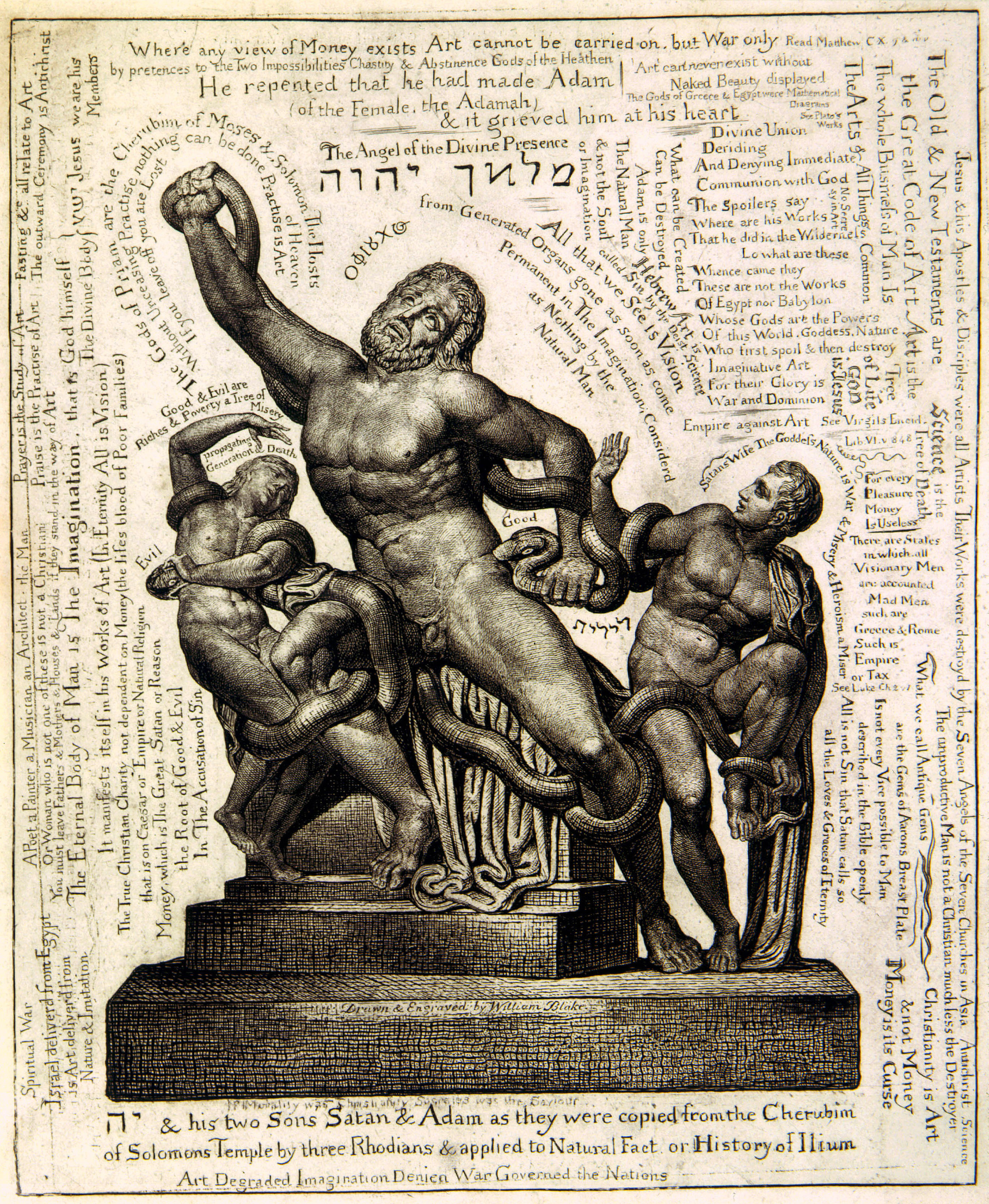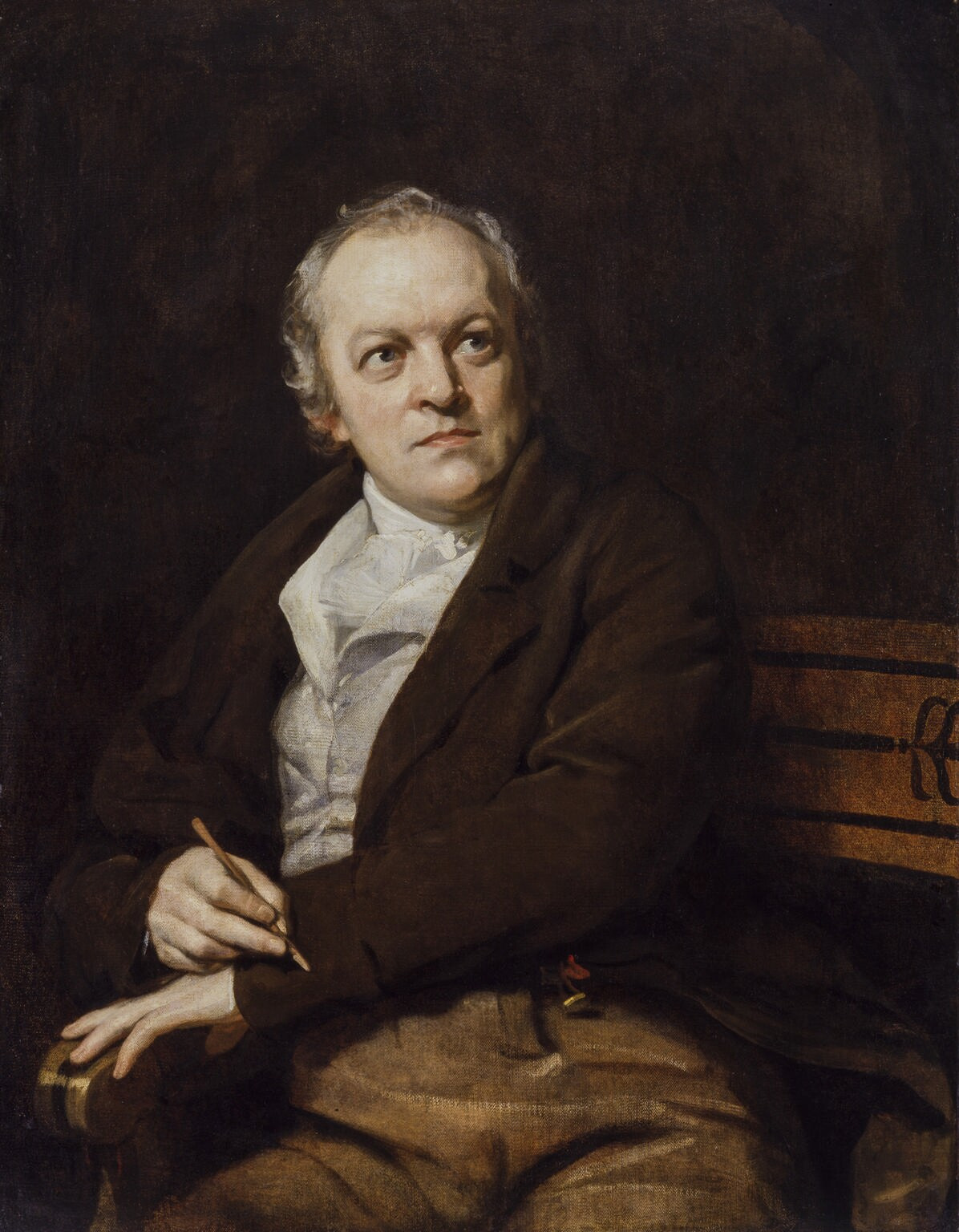 |
| British Museum Small Book of Designs From Marriage of Heaven and Hell |
Milton Klonsky's book William Blake, The Seer and His Visions,
published in 1977, approaches the study of Blake from his own
unique position as do each of us. Klonsky was the product of his
time and his environment and wrote with the zeal of one immersed
in the dawning of a new age.
W. C. Bamberger on the blog named Zoamorphosis tells us that:
"Klonsky was a classic 'Village Intellectual' who set out to know
everything interesting there was to know—about drugs, drink,
poetry, politics, and most memorably, the great poet artist
William Blake. And, further, to combine all this in unexpected
ways, give it some topspin, and serve it back with style."
Klonsky began his book with a striking account of his 'first and
only' use of LSD. Were it not for the role that Blake's poetry
played in that experience it would not have had such a profound
impact on Klonsky.
On page 8 of Klonsky's book he relates the consequences of his
'trip' as opening him to a new way of seeing and an alteration of
his awareness of time and eternity:
"My 'trip', I knew, would last from five to six hours...but suppose
it were to take fifty years, sixty, a whole lifetime? What then? As
if existence itself were a more subtly corrosive kind of acid,
consuming and flaying us, almost unawares, from within and without,
to whose pangs we gradually become accustomed until the end. It
occurred to me then, as I lurched and plodded off the beach, that
this is what Blake must have meant when he wrote: 'Time is the mercy
of Eternity; without Times swiftness/Which is the swiftest of all
things: all were eternal torment':
...
"Looking back now I can recall neither visions nor apparitions,
disembodied genii nor spirits out of the vasty deep - unless,
perhaps, that of Blake himself, whom I invoked to preside over the
scene. What I saw instead ('As the Eye,' said Blake, 'such the
Object') was the world as I had always conceived it to be, the only
'real' reality of matter reduced to minuter and minuter particles in
a space-time expanding to infinity-eternity, no more no less,
according to the scientific dispensation of Newton & Einstein,
but which I had never perceived so 'im-mediativtely' and
'into-it-ively' until then."
These are the passages from Blake which were incorporated in
Klonsky's intense LSD experience:
Marriage of Heaven and Hell, Plate 14, (E 39)
"If the doors of perception were cleansed every thing would
appear to man as it is: infinite.
For man has closed himself up, till he sees all things thro'
narrow chinks of his cavern."
Songs of Experience, Introduction, (E 18)
"Turn away no more:
Why wilt thou turn away
The starry floor
The watry shore
Is giv'n thee till the break of day."
Auguries of Innocence, (E 490)
"To see a World in a Grain of Sand
And a Heaven in a Wild Flower
Hold Infinity in the palm of your hand
And Eternity in an hour"
Milton, Plate 17, (E 110)
"The Mundane Shell, is a vast Concave Earth: an immense
Hardend shadow of all things upon our Vegetated Earth
Enlarg'd into dimension & deform'd into indefinite space,
In Twenty-seven Heavens and all their Hells; with Chaos
And Ancient Night; & Purgatory. It is a cavernous Earth
Of labyrinthine intricacy,"
Milton, Plate 24 [26], (E 121)
"Time is the mercy of Eternity; without Times swiftness
Which is the swiftest of all things: all were eternal torment:" _________________
"Blake intoxicates Klonsky, helps him look at the world with sustained energy, and from new perspectives - with the added benefit of avoiding the damaging effects of less literary and artistic drugs."
"Such perception, Klonsky points out, 'must be personal. . . [Has] to be seen by himself alone. There can be no other eyewitness.'"
Letters, To Rev Trusler, (E 701)
But I
hope that none of my Designs will be destitute of Infinite
Particulars which will present themselves to the Contemplator.
And tho I call them Mine I know that they are not Mine being of
the same opinion with Milton when he says That the Muse visits
his Slumbers & awakes & governs his Song when Morn purples The
East. & being also in the predicament of that prophet who says I
cannot go beyond the command of the Lord to speak good or bad
Letters, To Thomas Butts, (E 712)
"To my Friend Butts I write
My first Vision of Light
On the yellow sands sitting
The Sun was Emitting
His Glorious beams
From Heavens high Streams
Over Sea over Land
My Eyes did Expand
Into regions of air
Away from all Care
Into regions of fire
Remote from Desire
The Light of the Morning
Heavens Mountains adorning
In particles bright
The jewels of Light
Distinct shone & clear--
Amazd & in fear
I each particle gazed
Astonishd Amazed
For each was a Man
Human formd. Swift I ran
For they beckond to me
Remote by the Sea
Saying. Each grain of Sand
Every Stone on the Land
Each rock & each hill
Each fountain & rill
Each herb & each tree
Mountain hill Earth & Sea
Cloud Meteor & Star
Are Men Seen Afar" 






